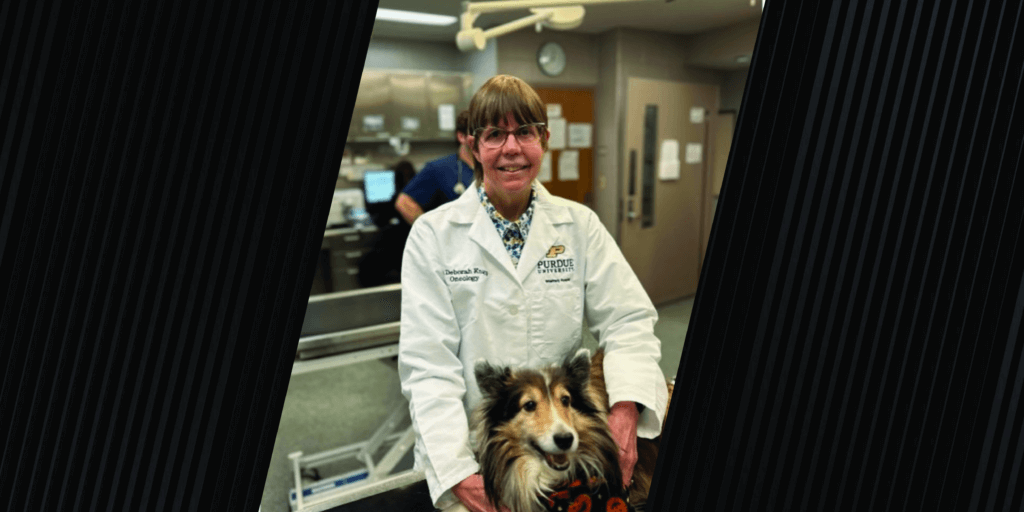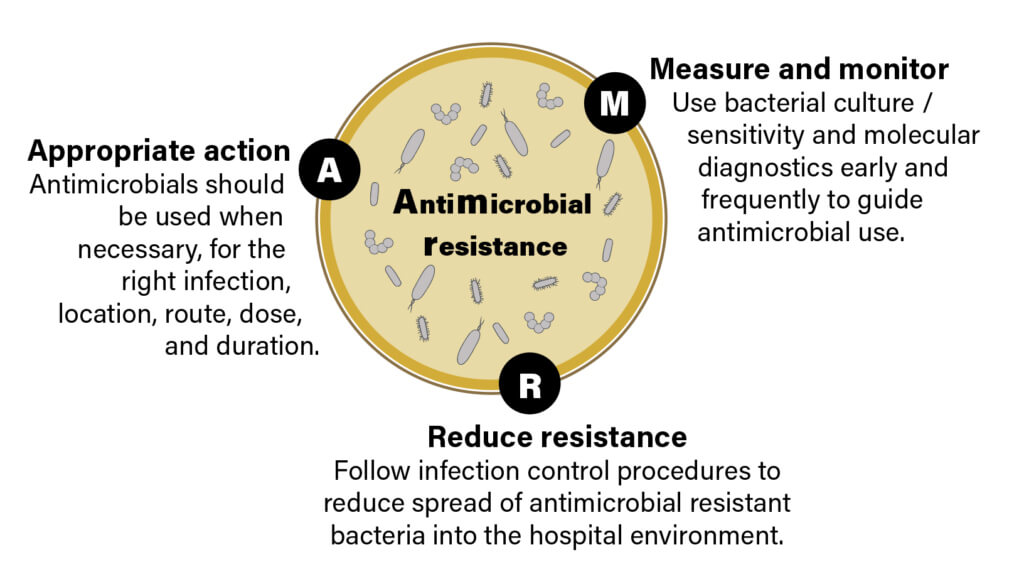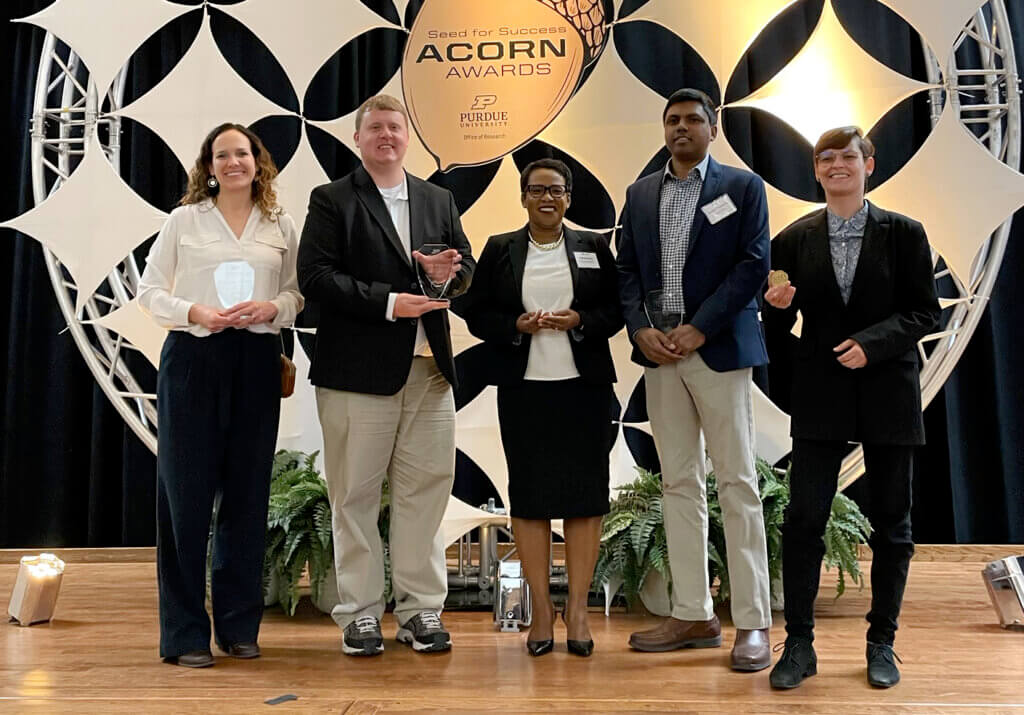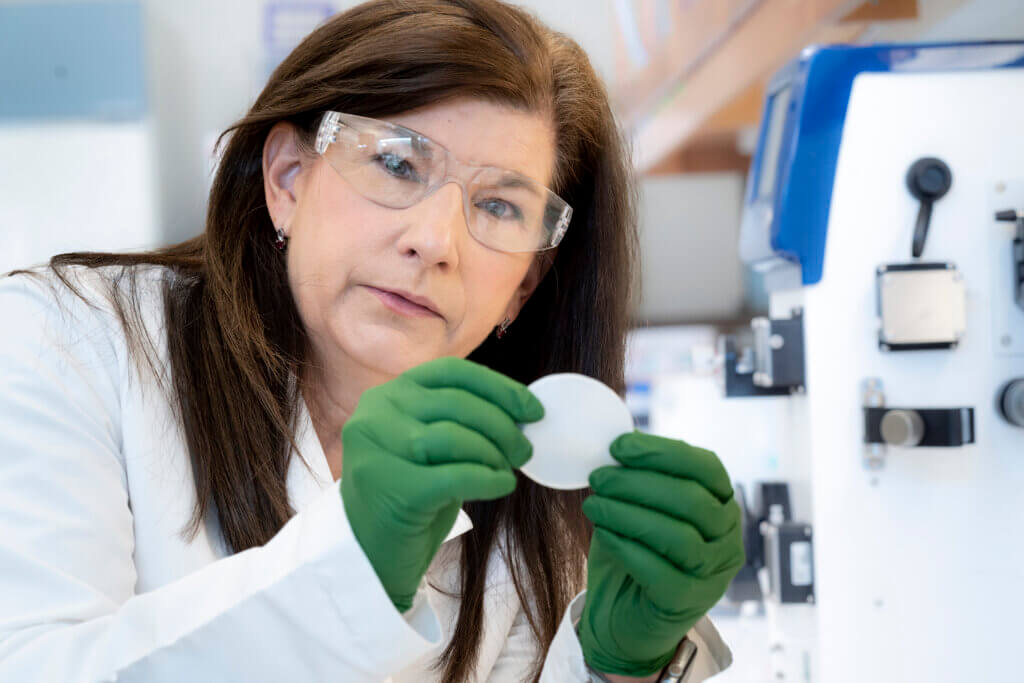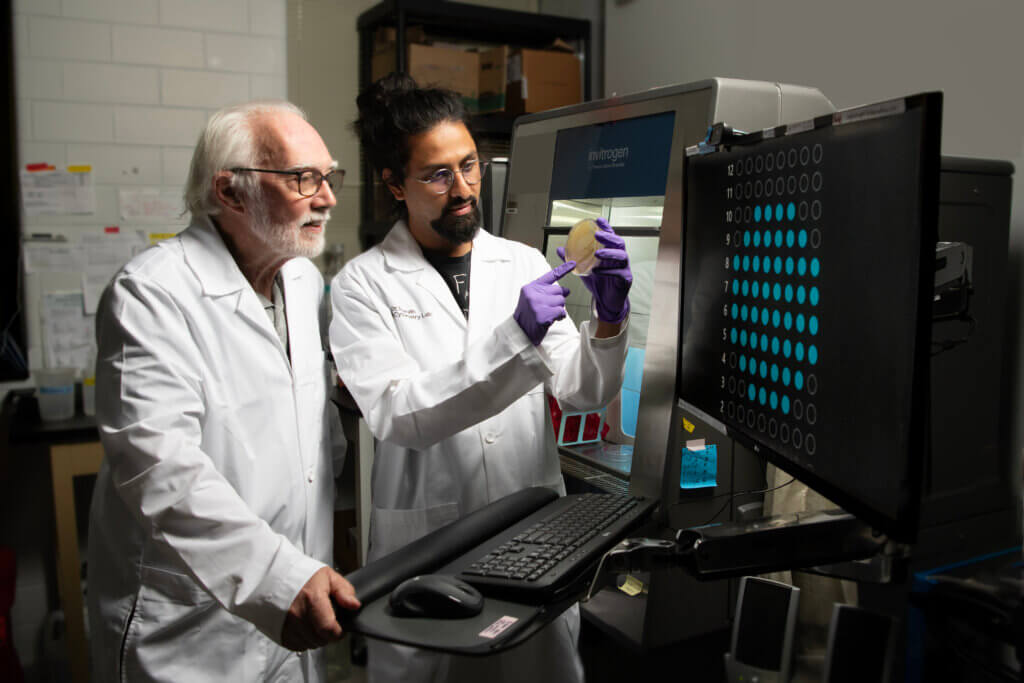Research
PVM Distinguished Professor Suresh Mittal to Speak at Purdue’s Westwood Lecture Series
January 17, 2025
The Westwood Lecture Series is part of Purdue President Mung Chiang’s efforts aimed at enhancing the intellectual vibrancy of the Purdue West Lafayette campus, and the next featured speaker is Purdue Veterinary Medicine’s Distinguished Professor of Virology, Dr. Suresh Mittal. His presentation entitled, “Universal Influenza Vaccine — An Aspiration or Reality?” is scheduled for January 28, and registration for the lecture is now open.
Three PVM Faculty Receive 2025 Purdue AgSEED Grants
January 10, 2025
Known by the acronym AgSEED, the Agricultural Science and Extension for Economic Development program is an internal competitive grants system of the Purdue University College of Agriculture that focuses on advancing Indiana’s leadership in plant and animal agriculture and rural growth, especially through entrepreneurial initiatives. This year, three Purdue Veterinary Medicine faculty members are among 17 recipients of 2025 AgSEED grants.
Purdue University and Akston Biosciences Bring “First Dose of Hope” in New Cancer Immunotherapy Trial for Dogs with Urinary Bladder Cancer
November 22, 2024
The Purdue University College of Veterinary Medicine, in partnership with Akston Biosciences Corporation, has initiated the enrollment of dogs with urinary bladder cancer in a clinical trial of a pioneering immunotherapy. The strategic partnership between Purdue and Akston was announced in August after the underlying technology was developed at the College of Veterinary Medicine and the Purdue Institute for Cancer Research (PICR).
Awareness Week to Shine Spotlight on Antimicrobial Resistance Next Week
November 15, 2024
Antimicrobial resistance (AMR) is a growing, significant One Health issue across the world. The WHO estimates that AMR was directly responsible for 1.27 million global deaths and contributed to 4.95 million deaths, with additional significant economic costs. AMR affects all countries and all income groups, and to tackle this urgent problem, researchers, producers, and practitioners from all areas must address the critical shortage of new antimicrobial drugs, and the use of antimicrobial drugs in medicine, farming, and industry. The week of November 18-24 is US Antibiotic Awareness Week and World AMR Awareness Week, and the College of Veterinary Medicine is taking advantage of these national and global campaigns to raise awareness about AMR and antimicrobial stewardship, and to highlight some of the research and practices being conducted at the college to address AMR.
PVM Faculty Honored for Research Success with Purdue Seed for Success Acorn Awards
November 15, 2024
When Purdue University’s Office of Research honored the accomplishments and innovative ideas of a host of researchers this week, several Purdue Veterinary Medicine scholars were among those recognized. At a ceremony Wednesday, November 14, in the Purdue Memorial Union North and South Ballrooms, the annual Seed for Success Acorn Awards were presented to Purdue Principal Investigators (PIs) and co-PIs who secured research awards of $1 million or more for a single proposal in fiscal year 2024.
Unlocking the Mysteries of the Brain
November 15, 2024
Despite more than six decades of research in the field of neuroscience, many functions of the brain — the most complex organ in the human body — remain a mystery. Recent research conducted in the Purdue University College of Veterinary Medicine and the Bindley Bioscience Center revealed that scientists are one step closer to understanding the process that activates and deactivates specific proteins within our cells. This breakthrough could one day lead to enhanced treatments that may slow down or perhaps reverse the advance of neurogenerative diseases such as Alzheimer’s, Parkinson’s and multiple sclerosis.
Former BMS Professor and GeniPhys Founder Sees Continued Success in Development of Wound Management Product
October 25, 2024
GeniPhys, a preclinical-stage company founded by a Purdue University researcher with ties to the College of Veterinary Medicine, is expected to commercialize a wound management product in the second quarter of 2025 that involves developing regenerative collagen polymeric biomaterials for soft tissue restoration. Collymer SAS was developed by Sherry Harbin, a Purdue professor of biomedical engineering and former professor (now professor by courtesy appointment) in the College of Veterinary Medicine’s Department of Basic Medical Sciences.
Building on Scholarly Excellence, Veterinary Medicine Postdoc Researcher Pursues Solutions to Global Crisis in Countering Antibiotic Resistance, Superbugs
October 18, 2024
Years of growing resistance to antibiotics have sparked an urgent global health crisis, giving rise to challenging biological threats and the emergence of more dangerous viral, fungal and bacterial strains, commonly called superbugs. Compounding the threat is the difficulty in a quick diagnosis, complicating how to effectively treat these illnesses. Purdue postdoctoral researcher Sharath Iyengar in the College of Veterinary Medicine’s Department of Basic Medical Sciences spends hours in the G221 laboratory at Lynn Hall, seeking answers to this health challenge.
Coppoc One Health Lecture Brings Princeton Scholar to Purdue to address 21st Century Challenges
October 11, 2024
Each year, the Purdue University College of Veterinary Medicine brings a leading One Health scholar to campus to address vital health issues from a One Health perspective that is based on the understanding that human, animal, plant, and environmental health are linked. This year, Princeton scholar Laura Kahn, MD, MPH, MP, will give the annual Coppoc One Health Lecture on the topic, “A One Health Analysis of Food Safety and Security, Antimicrobial Resistance, and Climate Change in the 21st Century.” The presentation at 12:30 p.m. on November 7 in Lynn Hall room 1136 is free and open to the public.
Ugandan Wildlife Veterinarian Captivates Lynn Hall Audience with Message about Conservation of Gorillas
October 4, 2024
The Purdue University College of Veterinary Medicine welcomed an international visitor this week who traveled half-way around the world to share a presentation with veterinary students entitled Conservaton of Gorillas through the One Health Approach. Dr. Gladys Kalema-Zikusoka, from Uganda, was a 2023 finalist for the Indianapolis Prize, which is awarded by the Indianapolis Zoo and is considered the world’s leading animal conservation award.



